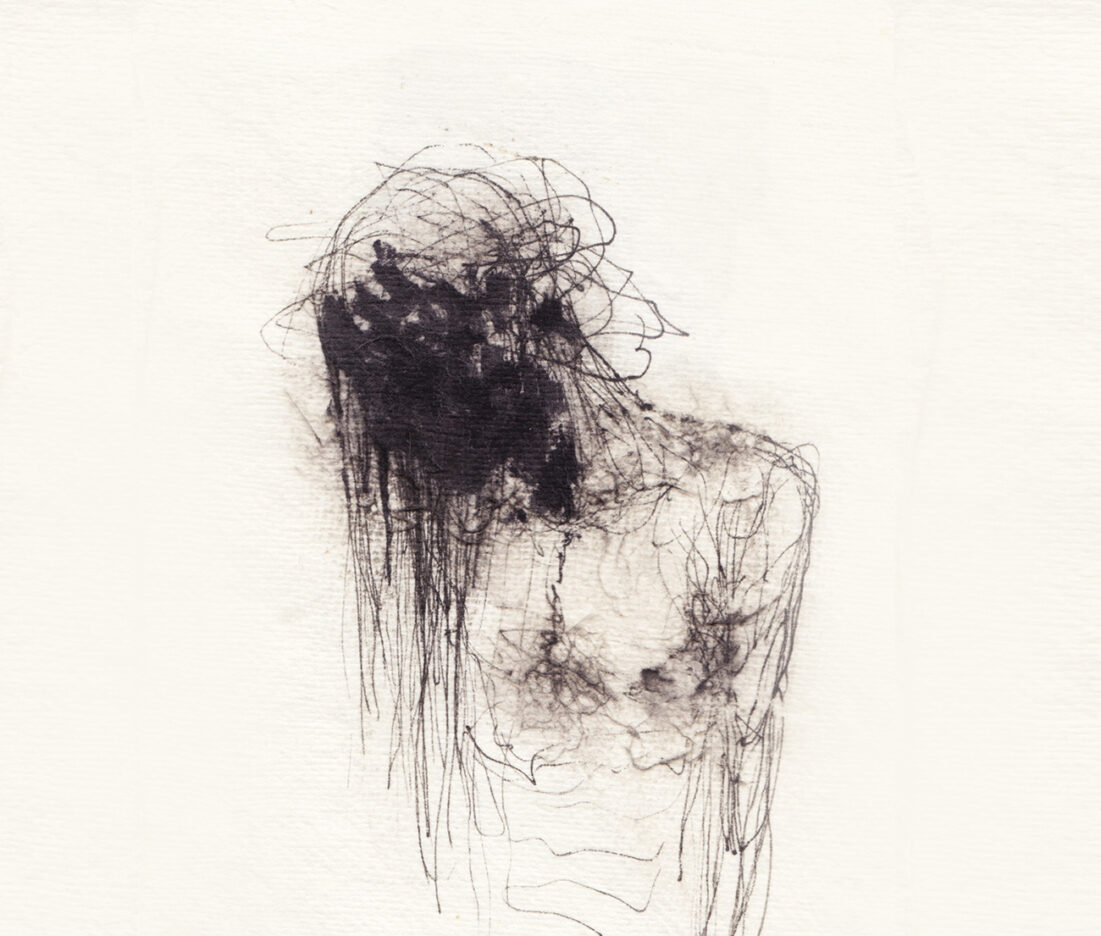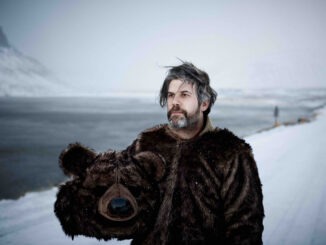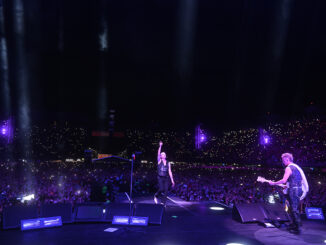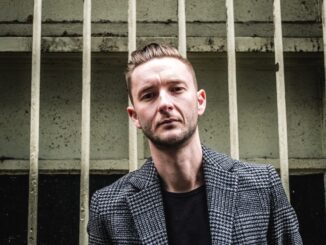On the Edge of a Lost and Lonely World is the second album to be released by Humanist – a big, ambitious recording project orchestrated by multi-instrumentalist/guitarist/songwriter and producer Rob Marshall. Like its self-titled 2020 debut, the album features guest appearances from an iconic list of vocal artists.
Former Humanist collaborators Dave Gahan, Ed Harcourt and Carl Hancock Rux return to join the musical talents of Tim Smith, Isobel Campbell, James Cox, Peter Hayes, Rachel Fannan and James Allan.
The release of the debut album, Humanist, in 2020 was a huge success. It was Rob’s first solo project after his band, Exit Calm split and the first record he’d ever produced. The music of Humanist is essentially about the human condition – our deep-rooted fears about our mortality, our grief at times of loss and our need to have answers as to why we are here. These themes were masterfully bedded down on a promising powerhouse of a record. It seemed Rob had the world at his feet until COVID struck and put paid to his plans for a promotional tour. The world, instead, had gone into lockdown.
Then, not long after the limbo of lockdown, in February 2022, Rob experienced a huge personal and professional loss – his key collaborator – singer/songwriter Mark Lanegan, suddenly passed away. They had shared a deep and ongoing musical friendship. Rob had written and produced six songs for Mark on their first collaboration, the celebrated Gargoyle in 2017. Mark’s next album, released in 2019, Somebody’s Knocking, featured six more co-writes from Rob. The first tracks Mark and Rob worked on were included on the debut album, and they were working on a third collaborative project at the time of Mark’s passing.
In addition to that, Rob also lost his best friend to cancer and was dealing with cancer himself at the time of writing On the Edge of a Lost and Lonely World. Unsurprisingly, these painful, dark times have influenced his songwriting, expanding on the human themes explored on the debut album – existential questions of life and death.
The album gets off to a rocking, rousing start with the aptly titled “The Beginning (My God)”, a track drenched with heavy-laden guitars and a strong and formidable vocal from Carl Hancock Rux. Listening to this is like watching a speeding train pass; the power of its moving presence blows you away, and you feel the energy created. The song is about the human need for a deity of some kind. Just one phrase, “What does it mean?/I wanna taste my God”, is repeated throughout like a plea to the skies as the song builds in intensity before an ace saxophone solo from Terry Edwards (PJ Harvey) cuts through the song and adds bite.
“Happy” was signed off to be a Mark Lanegan vocal, but in light of his passing, regular collaborator Ed Harcourt took the reins and did a brilliant job. It is a post-punk delight with shimmering guitars and embellishments of dark wave electronica. It feels warm and hopeful in mood. “Too Many Rivals”, the second single release performed by Tim Smith, is one of the best songs on the album. Tim’s delicate, vulnerable vocal perfectly blends with Rob’s glistening, chiming instrumentation. This song is a beautiful composition, one of those songs where the lyrics do not matter, as the music is so emotionally affecting.
Because of this record’s diversity of vocal talent, every song changes dynamics, resulting in a collection of songs that one person alone couldn’t achieve. For instance, “The Immortal” featuring Ed Harcourt again, is lyrically rich with hazy, psychedelic guitars that come alive in the soaring, trippy chorus: “Give me all your saline drips/ Give me all your oxygen tanks/ Give me all your blood banks and your drugs/Forever, forever, forever seems so far away and I can’t wait, can’t wait to be immortal/ Remember, remember, remember all these wasted days and I can’t wait, can’t wait for The Immortal” whilst “This Holding Pattern” is a song about the banality of life, of feeling trapped, articulated well by Cox’s dark wave vocal.
“Brother” is the latest single release co-written with Ed Harcourt and is an album highlight. I can’t listen to this without tears in my eyes. Sombre beats of drum & guitar in harmony with the melancholy, stringed instrumentation and heartfelt lyrics set the picture immediately of the pain and loss of grief: “Brother, I’ve got your back, don’t worry, enjoy the ride/ Little Brother there’s no coming back, I’m always by your side.” Dave Gahan’s distinctive baritone voice is perfect for this track. It’s such an emotional, moving listen to the last stirring, stringed note. Rob and Ed couldn’t have written a more fitting tribute to their friend.
“Born to Be” is a mesmerising, multi-layered song with a psychedelic, smoky vocal from Peter Hayes (Black Rebel Motorcycle Club). Its expansive sound is created by swirling synth waves, fuzz-drenched guitars, and steely beats. It is similar to the Goth-inspired, emotionally charged songs from the debut album. I think this track is going to be incredible to hear live.
The new record still has all the gothic industrial foreboding of the debut, but from this point, there is light and shade with more delicate, sedate songs. “Keep Me Safe” has a driving disco beat, glistening guitars and Rachel Fannan’s folky, under-stated vocal, whilst “Dark Side Of Your Window” featuring James Allan (Glasvegas) is a heartrending narrative of unrequited love. James’ vocal is the perfect blend of vulnerability and emotion for Rob’s feathery guitar washes before it ramps up in the chorus: “I wasn’t looking for you/ but I found you though, but you don’t know”.
“Love You More” features another regular collaborator, Isobel Campbell. Her serene vocals cast an ethereal, sweet glow over shimmering, hazy arrangements. Rob’s vocals, as Madman Butterfly, are found on the album’s last three songs. “Lonely Night” is a brief, dreamy interlude on the subject of loneliness: “I’m lonely and washed up with the tide,” while the other-worldly “The Presence of Hamen” was written by Rob at a particularly dark time.
And so, it was only right to have the closing track titled “The End”, which begins with vague crowd voices and a low hum of synth, as if in a dream, but “The End” is a song about death, of believing that we are not alone when we die. Gentle piano keys and deep cello notes offer comfort before the song suspends until it rises into a vast, celestial expanse. Its instrumentation is resplendent and beautifully cinematic and creates calm and tranquillity. It’s a masterful composition.
On the Edge of a Lost and Lonely World is an emotional journey through life. Rob has leaned into the darkness of loss he has gone through in the last few years and produced a record of emotional subtlety, depth and scope. “The Beginning” is exhilarating in its quest for answers. The songs in between are honest snapshots of all human emotion before “The End” brings the album to a hopeful, optimistic close.





Be the first to comment